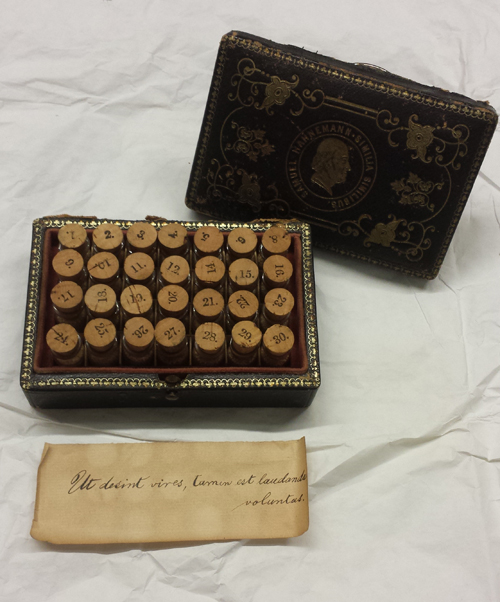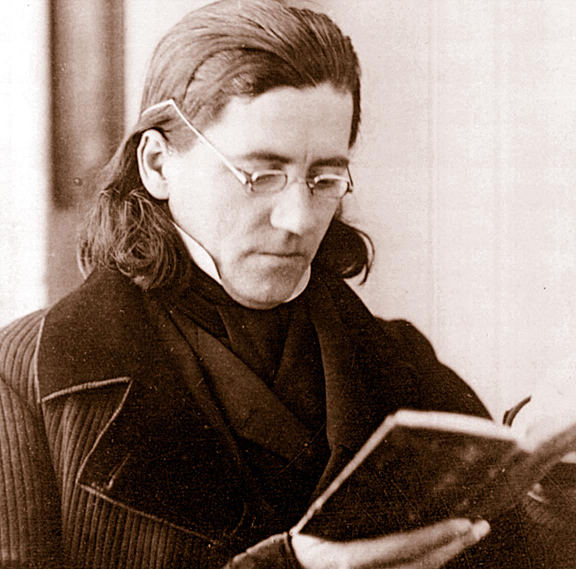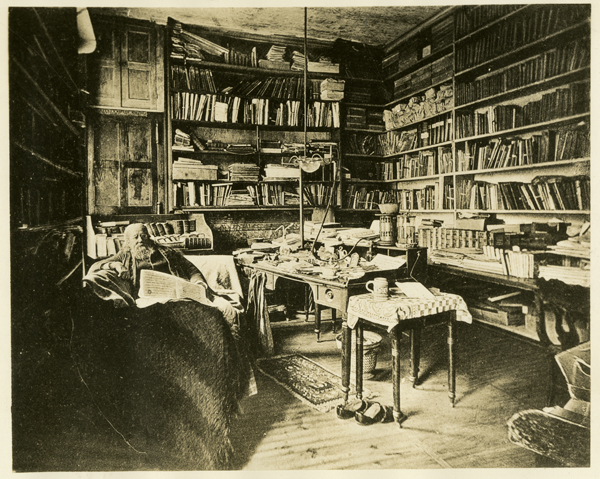Constantine Hering: The Father of American Homeopathy
by Chrissie Perella
Constantine Hering, M.D., the father of homeopathy in America, was born on January 1, 1800 in Oschatz, Saxony, in Germany. In 1817, he began studying medicine at a surgical academy in Dresden. By 1820, he was enrolled at the University of Leipzig and during his studies there, he turned to homeopathy after injuring himself during a post-mortem examination. Refusing the traditional treatment of the time - amputation - he turned to homeopathy and was healed. Hering became a practitioner of homeopathy and was a great advocate for Samuel Hahnemann, the father of homeopathic medicine. In 1826, he graduated from the University of Wurzburg with a doctor of medicine. He then spent the next 7 years in South America researching zoology and botany on the orders of the King of Saxony. Hering, however, continued working in homeopathic medicine at hospitals and a leper colony. In 1833, he immigrated to the United States and opened his own medical practice.

A homeopathic medicine case, likely Hering's
Homeopathy is based on the principle that 'like cures like' - so a substance which causes symptoms in large doses will treat those same symptoms in small doses. Just as drinking several cups of coffee might make you stay up all night, taking the essence of coffee in small, highly diluted doses will help you sleep more easily. While this may sound counter-productive, the concept of 'like cures like' is sometimes used in traditional medicine, like using small amounts of pollen to de-sensitize a person allergic to it.
The idea of treating like with like dates as far back as Hippocrates, an ancient Greek physician who lived from 460 to 377 B.C.E. He is known as the father of western medicine. When Samuel Hahnemann discovered this method of treatment in the 19th century, he embraced it as an alternative the harsh medical treatments of the time, which often included blood-letting and purging. It is not difficult to see why Constantine Hering turned to homeopathy when he was at risk of losing a limb.

Hering, ca. 1850s
Once in Philadelphia, Hering founded the Hahnemannian Society of Philadelphia. He promoted the use of homeopathic medicine and, in 1835, along with several other doctors, he founded the North American Academy of Homeopathic Medicine in Allentown, Pennsylvania - the first homeopathic medical school in the United States. The Allentown Academy remained open until 1842. In 1838, the Homeopathic Medical Society of Philadelphia was founded. The Homeopathic Medical College of Pennsylvania opened in 1848 and in 1867, Hahnemann Medical College opened, both in Philadelphia. The two schools merged in 1871. Constantine Hering also published several scholarly journals, including the American Journal of Homeopathy (1835) and the Philadelphia Journal of Homeopathy (1852). He wrote several books as well, like his The Logic of Homeopathy (1860s). Hering continued practicing homeopathic medicine until his death in 1880.

Hering in his study, ca. 1870s
The Legacy Center holds Hering's papers as well as those of his son-in-law, Calvin Knerr, who took over Hering's practice after his death. The finding aid for this collection can be found here: Constantine Hering and Calvin B. Knerr Family Papers. In addition to the family papers, the Legacy Center has Hering's collection of the works of Paracelsus, a 16th-century Swiss German physician who founded the discipline of toxicology. A PDF catalogue listing of the works in the collection can be found here:Paracelsus catalogue.